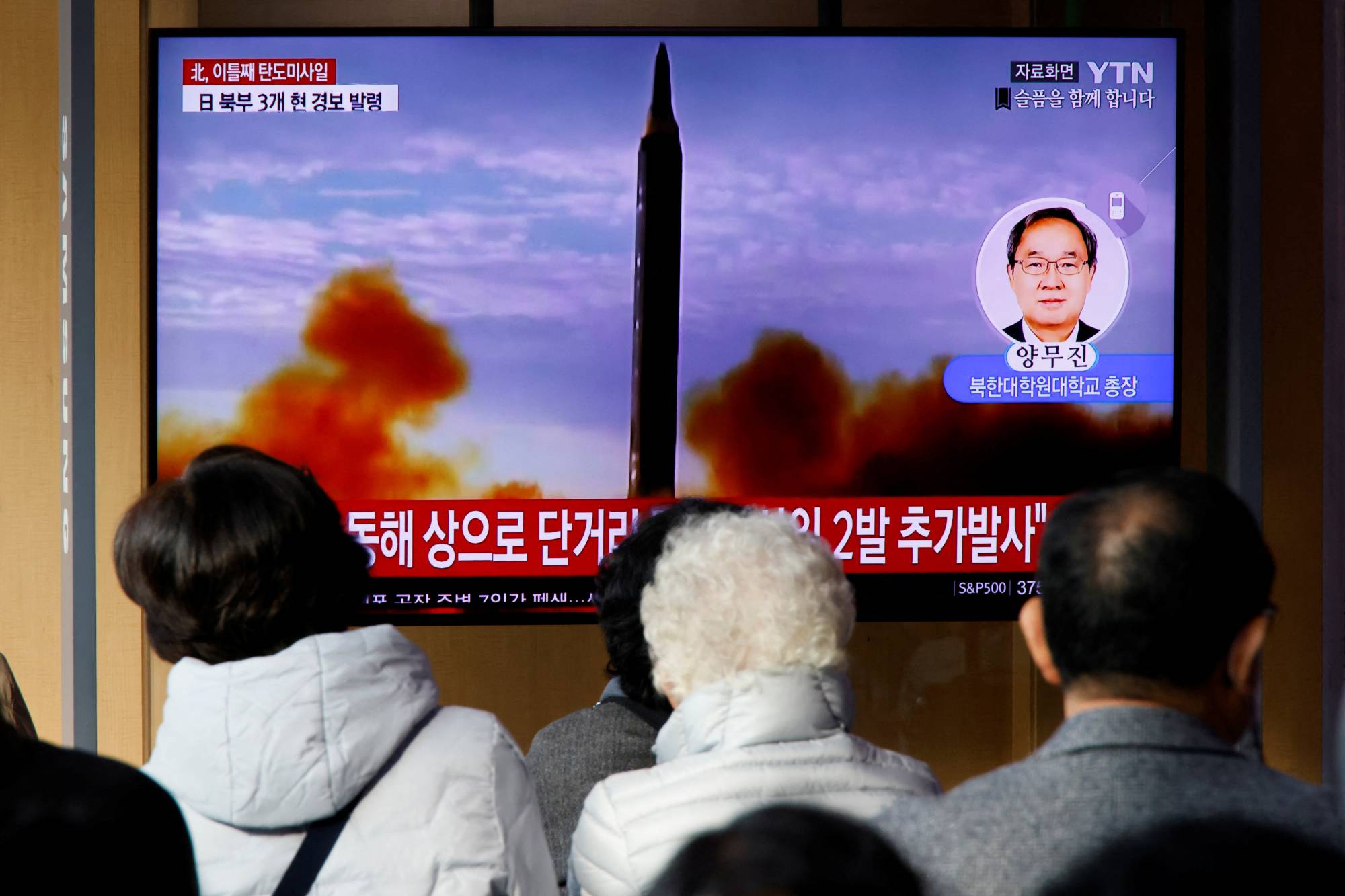After 27 missile launches in two days, including a long-range projectile that failed to overpass Japan and another that crossed a nautical border with South Korea, one thing is clear: North Korea is getting diminishing returns from its theatrics.
During the "fire and fury” era in 2017, a missile overpass of Japan caused gold to rise, Japanese stocks to fall and Treasuries to rally, as a military confrontation seemed to some to be inevitable. These days, markets are more concerned with Jerome Powell than Kim Jong Un.
That might be partly explained by the fact that Japan was enjoying a sleepy fall holiday when the suspected intercontinental ballistic missile was launched. But Pyongyang’s sound and fury increasingly signifies very little. Useful as they may be to intelligence agencies looking to gauge an enemy’s capabilities, the missile launches have long since lost the ability to scare.



